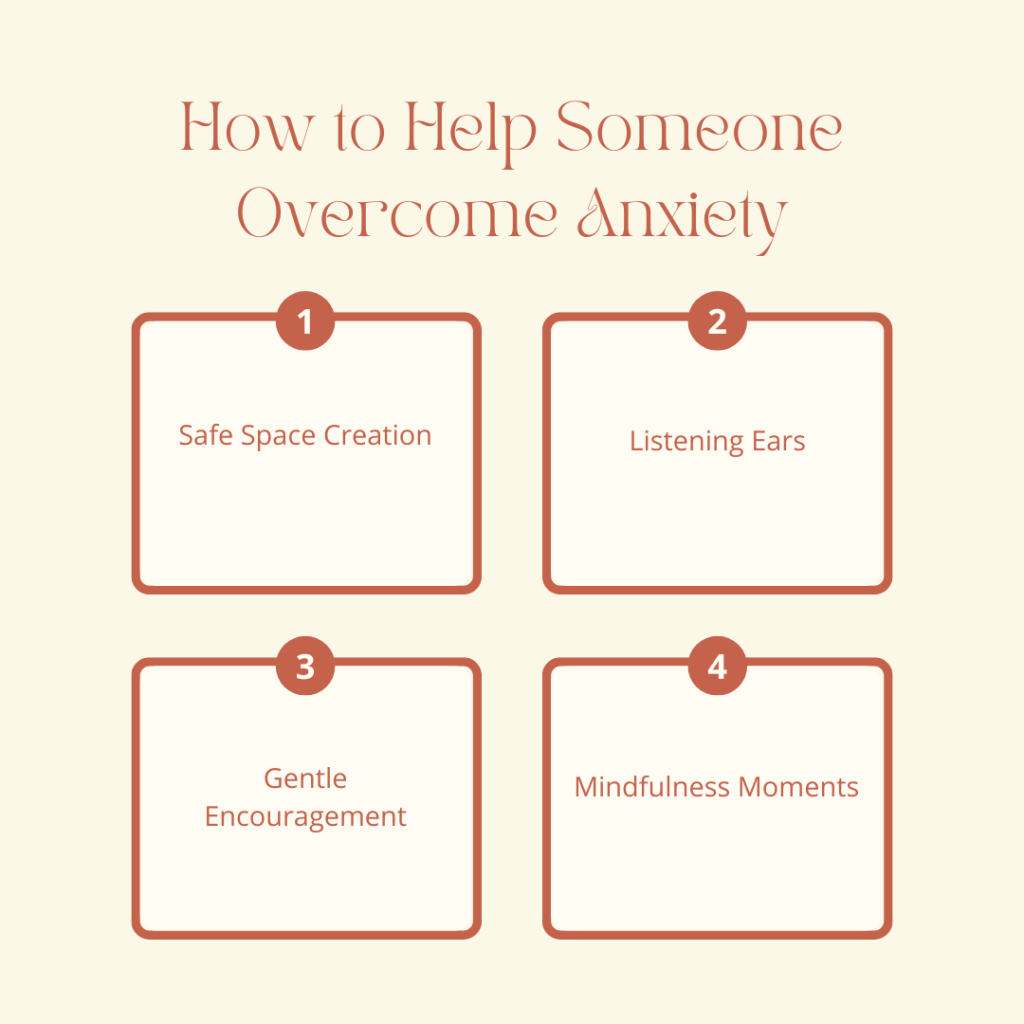Anxiety can be a debilitating condition, affecting various aspects of a person’s life, including relationships, work, and overall well-being. If someone you care about is struggling with anxiety, your support can make a significant difference in their journey toward healing. Understanding how to help effectively is key to providing the right kind of support. Here are practical ways you can assist someone with anxiety.
The Benefits of Therapy for Anxiety
Therapy can be a transformative experience for those struggling with anxiety. Cognitive Behavioral Therapy (CBT), for example, is widely recognized for its effectiveness in treating anxiety disorders. It helps individuals identify negative thought patterns and replace them with healthier perspectives. Group therapy can also provide a sense of community, allowing individuals to share experiences and learn from one another. By encouraging your loved one to pursue these therapeutic options, you help them take proactive steps toward their mental health.
1. Educate Yourself About Anxiety
Anxiety disorders are more than just feeling nervous or worried occasionally; they are ongoing conditions that can significantly impact daily life. Learning about anxiety, its symptoms, and different treatment options like Cognitive Behavioral Therapy (CBT) or Dialectical Behavior Therapy (DBT) can equip you with the right knowledge to be supportive.
2. Offer a Listening Ear Without Judgment
One of the most valuable things you can offer is a safe haven where your loved one can talk openly about their feelings. Listen without interrupting or trying to solve their problems right away. Just being there and acknowledging their emotions can help them feel less alone. Avoid minimizing their experience or saying things like “just relax” or “don’t worry,” as these phrases, though well-meaning, can come off as dismissive.
3. Encourage Professional Help
Treatment options such as individual therapy, group therapy services, or programs like Intensive Outpatient Programs (IOP) and Partial Hospitalization Programs (PHP) can offer structured support. Therapists trained in cognitive and dialectical behavior therapies can help individuals develop coping strategies and manage their anxiety effectively.
4. Be Patient and Supportive of Treatment
Supporting a family member through treatment requires patience. Whether they are attending a mental health treatment center or engaging in individual or group therapy, the journey to managing anxiety takes time.
5. Help Them Practice Coping Strategies
Many therapies, such as Cognitive Behavioral Therapy (CBT), teach specific coping strategies that can help manage anxiety. Encourage your loved one to use these techniques, such as deep breathing exercises, mindfulness, and grounding techniques. You can even participate with them, turning these practices into a shared activity that helps reinforce their benefits.
6. Avoid Triggers When Possible
While it’s not always feasible to completely avoid anxiety triggers, being aware of what might worsen their anxiety can help. For instance, if crowded places or loud noises make them anxious, try to plan activities in quieter, more controlled environments. Respect their boundaries and be considerate of their needs during social gatherings or daily routines.
7. Offer Practical Support
Anxiety can make daily tasks feel overwhelming. Offering practical help, like assisting with errands, helping manage a busy schedule, or simply being a calming presence, can alleviate some of the stress they’re experiencing. Sometimes, the smallest gestures—like a text message checking in or a cup of tea—can provide great comfort.
8. Be Mindful of Your Own Well-Being
Helping a person with anxiety is hard, so it’s essential to take care of yourself, too. Engage in your own self-care routines, seek support when needed, and set healthy boundaries.
Conclusion
Helping someone with anxiety requires compassion, understanding, and patience. While you cannot fix their anxiety, your support can significantly impact their journey toward healing. By educating yourself, listening without judgment, encouraging professional help, and offering practical support, you can be a source of comfort and strength. Remember, everyone’s journey with anxiety is unique, so being adaptable and responsive to their needs is essential. If you or someone you know needs additional support, Archway Behavioral Health is here to help. Contact us or call us at (888) 488-4103 today to learn more about our services and resources for mental health.
FAQs About Helping Someone with Anxiety
What is anxiety, and what are its common symptoms?
Anxiety is a normal response to stress, but when it becomes excessive, it can lead to anxiety disorders. Common symptoms include persistent worry, restlessness, fatigue, difficulty concentrating, irritability, and physical symptoms like increased heart rate and sweating.
How can I recognize if someone is struggling with anxiety?
Look for signs such as avoidance of social situations, changes in mood, difficulty sleeping, changes in appetite, and increased agitation. They may also express feelings of being overwhelmed or unable to cope.
What should I say to someone with anxiety?
Listen actively and validate their feelings. Avoid saying things like “just relax” or “don’t worry.” Instead, offer phrases like “I’m here for you” or “It’s okay to feel this way.” Encourage them to share their thoughts without judgment.
How can I encourage someone to seek professional help?
Gently suggest that they consider talking to a therapist or counselor. You can offer to help them find a mental health professional or accompany them to their first appointment to ease their anxiety about seeking help.
What are some practical ways to support someone with anxiety?
Offer to help with daily tasks that may feel overwhelming, such as running errands or preparing meals. Be patient, listen without judgment, and encourage healthy coping strategies like exercise and mindfulness.
Is it okay to ask someone about their anxiety?
Yes, but approach the topic with sensitivity. Let them know you care and are open to discussing their feelings. Ask open-ended questions to encourage them to share, but be respectful if they don’t want to talk.



